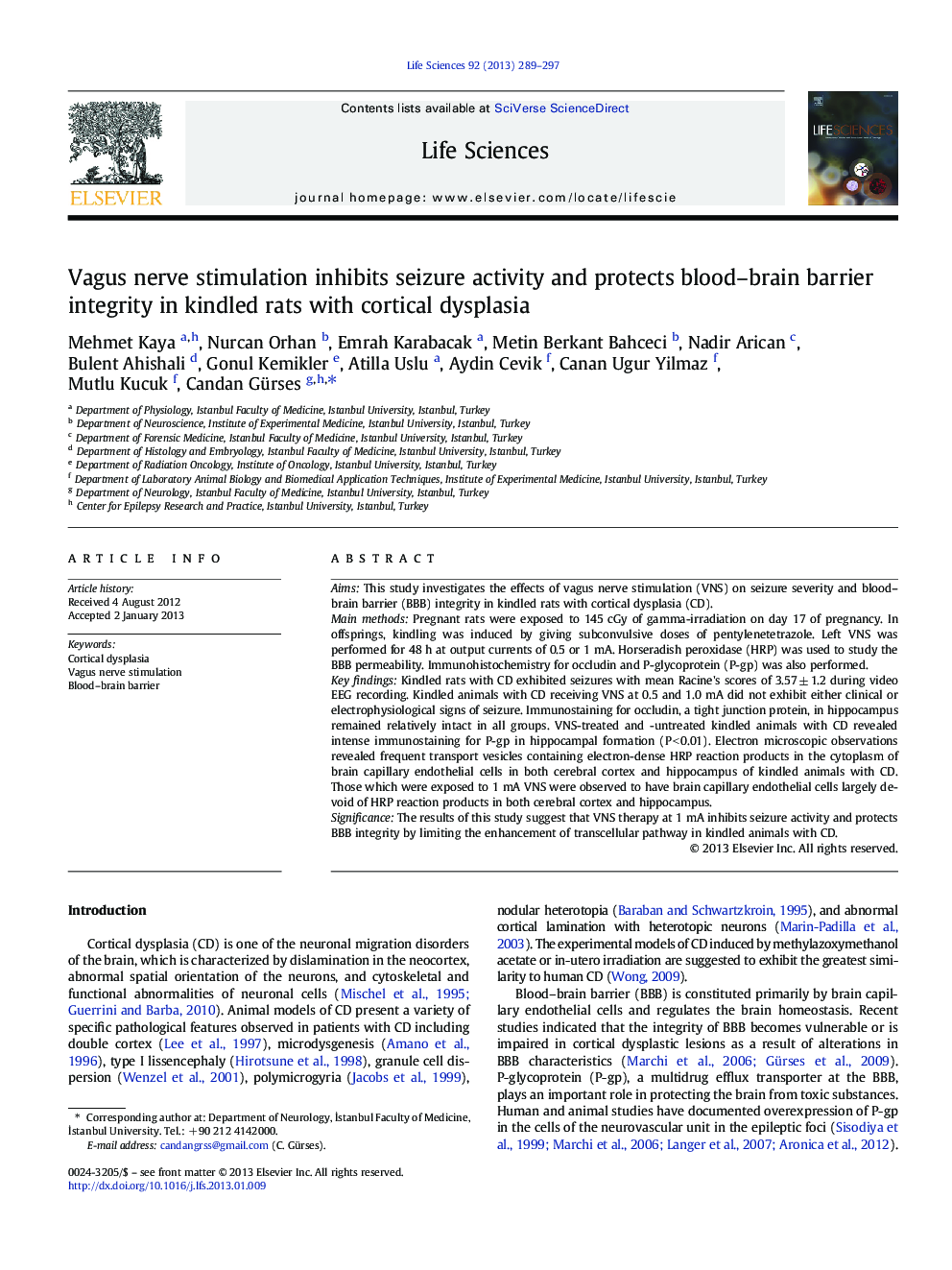| Article ID | Journal | Published Year | Pages | File Type |
|---|---|---|---|---|
| 2551594 | Life Sciences | 2013 | 9 Pages |
AimsThis study investigates the effects of vagus nerve stimulation (VNS) on seizure severity and blood–brain barrier (BBB) integrity in kindled rats with cortical dysplasia (CD).Main methodsPregnant rats were exposed to 145 cGy of gamma-irradiation on day 17 of pregnancy. In offsprings, kindling was induced by giving subconvulsive doses of pentylenetetrazole. Left VNS was performed for 48 h at output currents of 0.5 or 1 mA. Horseradish peroxidase (HRP) was used to study the BBB permeability. Immunohistochemistry for occludin and P-glycoprotein (P-gp) was also performed.Key findingsKindled rats with CD exhibited seizures with mean Racine's scores of 3.57 ± 1.2 during video EEG recording. Kindled animals with CD receiving VNS at 0.5 and 1.0 mA did not exhibit either clinical or electrophysiological signs of seizure. Immunostaining for occludin, a tight junction protein, in hippocampus remained relatively intact in all groups. VNS-treated and -untreated kindled animals with CD revealed intense immunostaining for P-gp in hippocampal formation (P < 0.01). Electron microscopic observations revealed frequent transport vesicles containing electron-dense HRP reaction products in the cytoplasm of brain capillary endothelial cells in both cerebral cortex and hippocampus of kindled animals with CD. Those which were exposed to 1 mA VNS were observed to have brain capillary endothelial cells largely devoid of HRP reaction products in both cerebral cortex and hippocampus.SignificanceThe results of this study suggest that VNS therapy at 1 mA inhibits seizure activity and protects BBB integrity by limiting the enhancement of transcellular pathway in kindled animals with CD.
